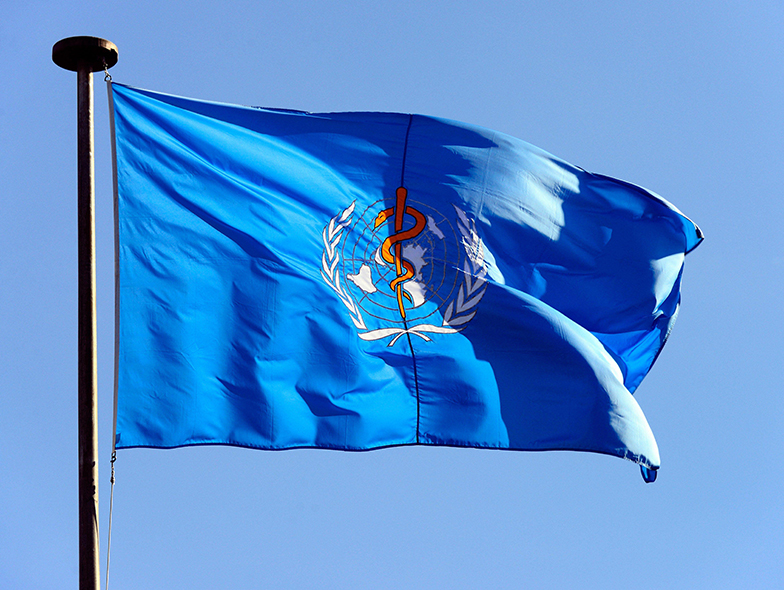WHO says monkeypox not a health emergency, but leaders ‘deeply concerned’

The UN agency convened a meeting last week to discuss the outbreak
The World Health Organization has determined that monkeypox is not yet a global health emergency after a meeting of international experts last week.
The health body said in a statement that although there were some differing views within the committee, they ultimately agreed by consensus that the outbreak does not warrant the Public Health Emergency of International Concern (PHEIC) title.
However, WHO Director-General Tedros Adhanom Ghebreyesus noted that the situation remains serious. He said: ‘I am deeply concerned about the monkeypox outbreak, this is clearly an evolving health threat that my colleagues and I in the WHO Secretariat are following extremely closely.’
The ‘global emergency’ label currently only applies to the coronavirus pandemic and efforts to eradicate polio.
There have been more than 3,200 confirmed cases of monkeypox and one death reported in the last six weeks from 48 countries where it does not usually spread, according to according to the UN agency. Almost 1,500 cases and 70 deaths in central Africa, where the disease is more common, have also been reported, with the majority in the Democratic Republic of Congo.
The disease spreads through close contact and symptoms include fever, rashes and lesions on the skin. It has been spreading largely between men who have sex with men outside the countries where it is endemic, though it is not defined as a sexually transmitted infection.
There are vaccines and treatments available for monkeypox, although they are in limited supply. On June 14, vaccine maker Bavarian Nordic announced that it had signed a supply agreement with the European Union for 110,000 doses of its Imvanex shot. These will be made available to EU Member States, Norway and Iceland.
There are no current plans for widespread vaccination. Countries with available doses, such as the UK and Germany, have recommended the shot for those at the highest risk of contracting the disease, which includes gay and bisexual men, healthcare workers, and close contacts.
Related News
-
News Pharmapack Awards 2024 Patient-Centric Design Award Winner – Dr Ferrer BioPharma
The 2024 Pharmapack Awards celebrated the best in innovation and design for the pharmaceutical packaging and drug delivery industry on January 24, 2024. -
News Women in Pharma: Minding the Gap at Pharmapack 2024
2024 marks the first year Pharmapack will host a Diversity track dedicated to bridging the gap within the pharmaceutical packaging and drug delivery sector. The track includes a panel discussion on 'Enabling Diversity in the Workplace,' focused... -
News Pharmapack Awards 2024 - Celebrating Packaging and Drug Delivery Innovation
The 2024 Pharmapack Innovation Awards ceremony celebrated the best in pharmaceutical packaging and drug delivery innovation at all levels. The awards were held on January 24, 2024 at the Paris Expo Porte de Versailles. -
News 2024 Pharma Industry Trends Outlook: Collaboration, Market Maturity, and Digital Futures
The annual CPHI Online 2024 Pharma Trends Outlook, in partnership with Arvato Systems, identifies 12 key industry trends shaping the life sciences industry in the coming year. -
News New Novo Nordisk AI hub for drug discovery to open in London, UK
Danish pharmaceutical giant Novo Nordisk will be opening an AI-based research facility in the heart of London to advance drug discovery operations. -
News BioNTech to begin mRNA vaccine manufacturing in Rwanda by 2025
German biotechnology company BioNTech has stated their intentions to begin production at their mRNA vaccine factory in Rwanda by 2025, which will mark the first foreign mRNA vaccine manufacturing site on the continent of Africa. -
News Women in Pharma: Looking back on 2023 and moving forward to 2024
In this monthly series, we interview women from across the pharmaceutical industry and supply chain to discuss the importance of gender diversity in healthcare, the workplace, and beyond. -
News CPHI Barcelona 2023: Partnering for Success – Managing Outsourcing Relationships to Optimise Manufacturing Operations
During CPHI Barcelona 2023, insightful content sessions offered attendees the chance to explore trending topics with expert speakers and panellists. Here, we summarise what the pharma industry and supply chain are talking about the most.
Position your company at the heart of the global Pharma industry with a CPHI Online membership
-
Your products and solutions visible to thousands of visitors within the largest Pharma marketplace
-
Generate high-quality, engaged leads for your business, all year round
-
Promote your business as the industry’s thought-leader by hosting your reports, brochures and videos within your profile
-
Your company’s profile boosted at all participating CPHI events
-
An easy-to-use platform with a detailed dashboard showing your leads and performance







